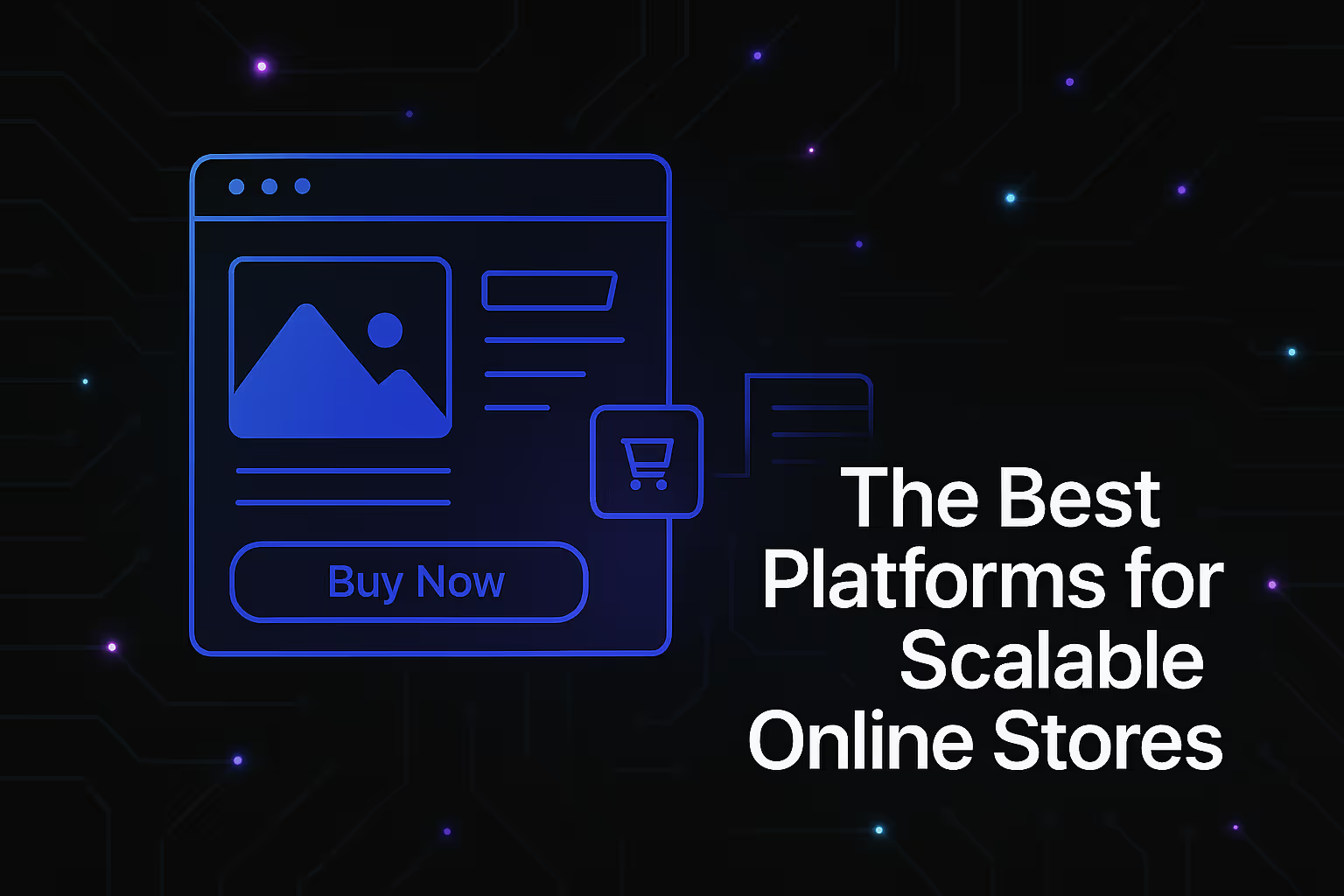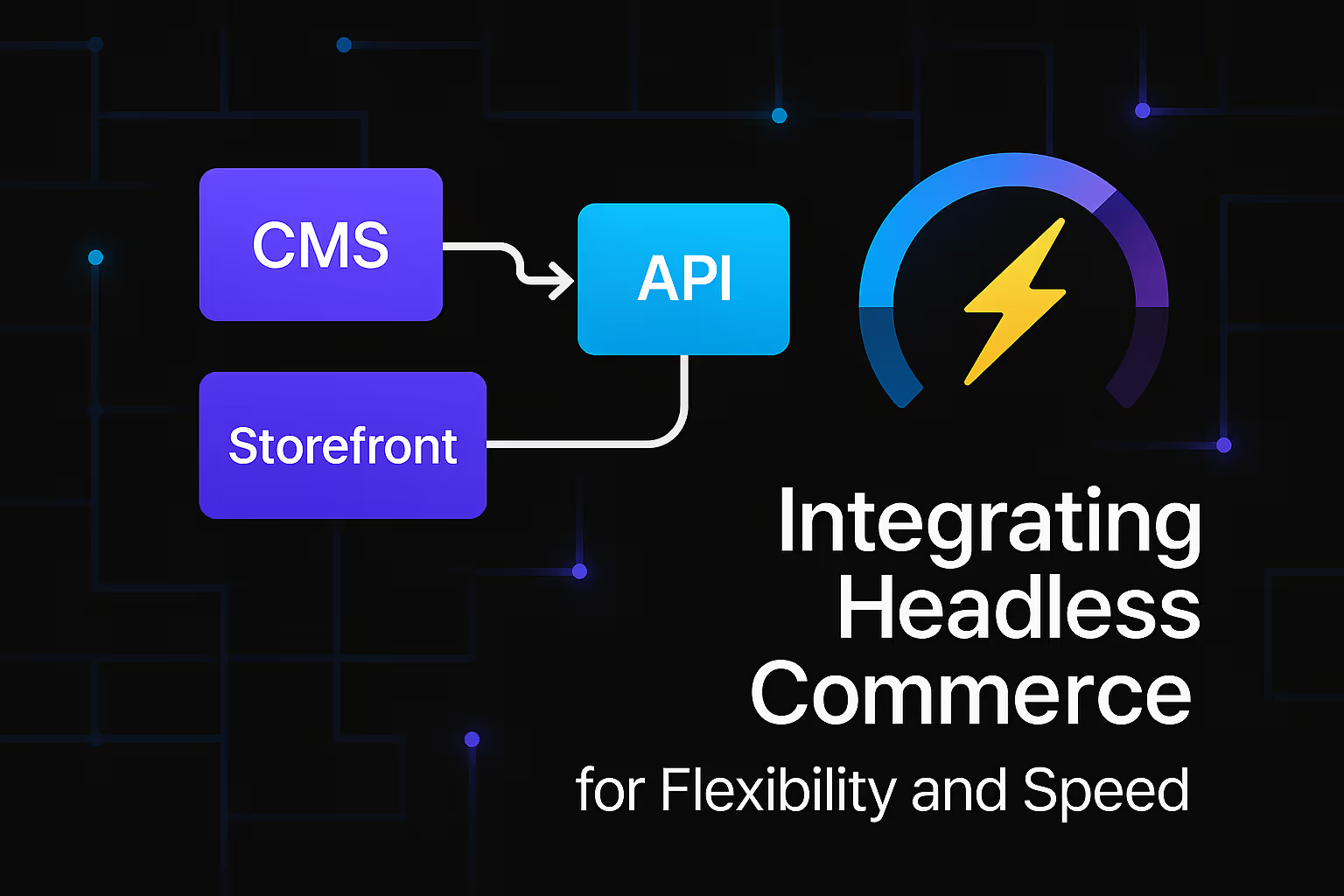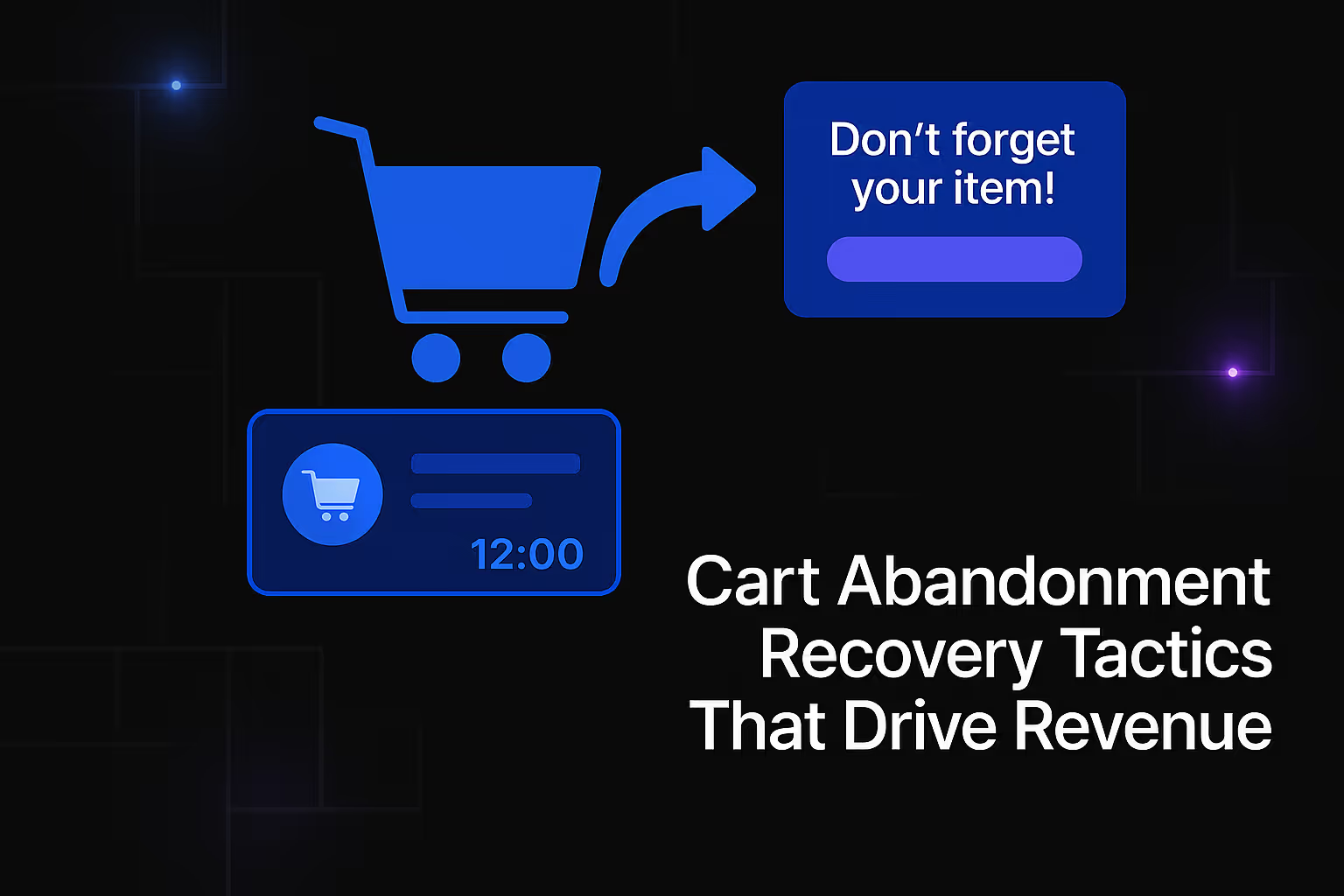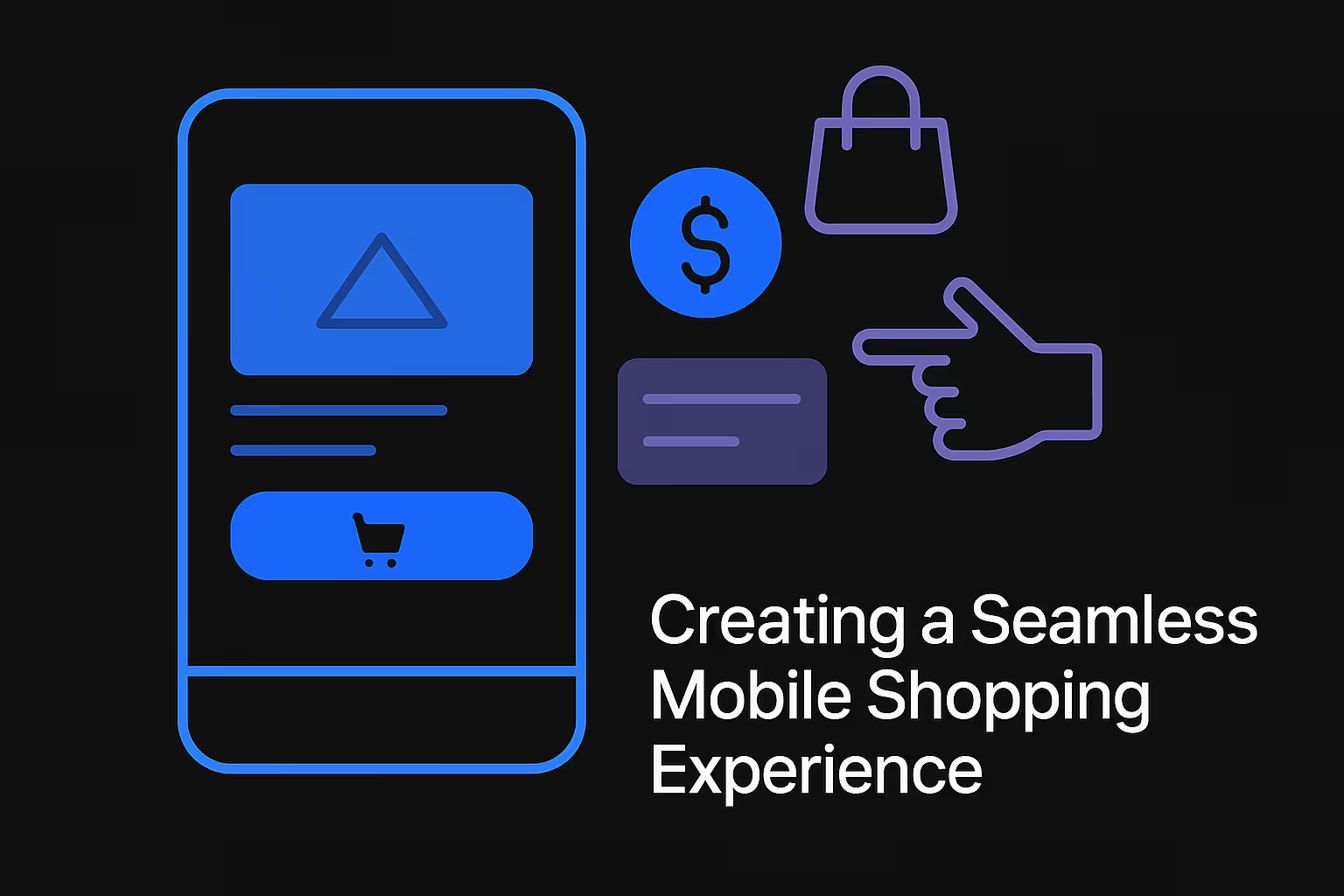The Best Platforms for Scalable Online Stores

In the dynamic world of e-commerce, the ability to scale your online store is not merely a desirable feature but a critical necessity for sustained growth and long-term success. As businesses expand, so too do their operational demands, customer bases, and product catalogs. A robust e-commerce platform built for scalability ensures that your digital storefront can seamlessly accommodate increased traffic, higher transaction volumes, and evolving business models without compromising performance, user experience, or security. Choosing the right foundation from the outset can prevent costly migrations, minimize downtime, and empower your brand to seize new market opportunities as they arise. This comprehensive guide delves into the essential aspects of e-commerce scalability and explores the leading platforms that empower businesses to grow without limits.
Understanding E-commerce Scalability: More Than Just Traffic
Scalability in the context of an online store encompasses far more than simply handling a surge in website visitors. True e-commerce scalability is a multifaceted concept that touches upon every layer of your business operation, from infrastructure to customer service. It refers to a platform's inherent capacity to grow and adapt alongside your business without requiring a complete overhaul or significant performance degradation.
The Pillars of Scalable E-commerce
At its core, a scalable e-commerce platform must demonstrate resilience and flexibility across several key areas. Infrastructure scalability is paramount; this means the platform can effortlessly manage spikes in traffic during peak seasons or viral marketing campaigns, processing thousands of simultaneous transactions without crashing or slowing down. It requires robust server architecture, efficient database management, and often, distributed content delivery networks (CDNs) to ensure global reach and rapid load times for all users.
Beyond infrastructure, operational scalability is equally vital. As your business expands, so does the complexity of managing inventory, processing orders, handling returns, and integrating with third-party logistics providers. A truly scalable platform facilitates streamlined workflows, automates routine tasks, and offers sophisticated tools for managing a growing product catalog, diverse shipping options, and international fulfillment. This also extends to data scalability, where the platform can effectively store, retrieve, and analyze vast amounts of customer data, product information, and sales metrics, providing invaluable insights for strategic decision-making.
Furthermore, functional scalability refers to the platform's ability to support an increasing array of features and functionalities without becoming cumbersome or inefficient. This could involve adding new payment gateways, expanding into new sales channels like marketplaces or social commerce, integrating with enterprise resource planning (ERP) systems, or implementing advanced personalization engines. The platform should offer an extensible architecture that allows for customization and integration with external tools, ensuring it can evolve to meet future business needs and technological advancements.
Finally, team scalability is often overlooked but crucial. As your team grows, the platform should facilitate collaboration, provide role-based access, and offer intuitive interfaces that enable various departments—from marketing and sales to customer support and product development—to work efficiently within the system. A well-designed, scalable platform empowers your human capital, rather than bottlenecking it.
Key Features of a Platform Built for Growth
When evaluating e-commerce platforms for their scalability potential, several core features stand out as non-negotiable. These characteristics dictate a platform's ability to support your journey from startup to enterprise.
Performance and Reliability Under Load
A platform's ability to maintain high performance under heavy traffic and transaction loads is a foundational aspect of scalability. This involves not just server capacity, but efficient code, optimized database queries, and intelligent caching mechanisms. A slow-loading website or one that crashes during sales events can lead to significant revenue loss and irreparable damage to brand reputation. Look for platforms that boast strong uptime guarantees, offer auto-scaling capabilities, and utilize global CDN networks to deliver content quickly to customers worldwide. High performance is directly correlated with customer satisfaction and conversion rates.
Extensive Customization and Flexibility
Every growing business has unique needs. A scalable platform must offer profound customization capabilities, allowing you to tailor the storefront, implement specific business logic, and integrate with a wide array of specialized tools. This often comes in the form of open APIs (Application Programming Interfaces) that enable seamless data exchange with ERP systems, CRM software, marketing automation tools, and custom applications. The ability to modify the platform's core functionalities or extend its features without breaking the underlying architecture is critical for long-term adaptability.
Robust Integration Ecosystem
No e-commerce platform exists in a vacuum. A truly scalable solution integrates effortlessly with the broader ecosystem of tools that modern businesses rely upon. This includes payment processors, shipping carriers, inventory management systems, accounting software, customer service desks, and marketing platforms. A rich marketplace of pre-built integrations or a well-documented API for custom development significantly reduces the complexity and cost of connecting disparate systems, allowing for a more cohesive and efficient operational environment.
Advanced Security Measures
As your online store grows, so does the amount of sensitive customer data it handles, making it a more attractive target for cyber threats. A scalable platform must prioritize robust security measures, including PCI DSS compliance for payment processing, strong encryption protocols, fraud detection tools, and regular security audits. Proactive threat monitoring and rapid response capabilities are essential to protect both your business and your customers' trust.
Comprehensive Support and Community
While not a technical feature, the quality of support and the vibrancy of the platform's community are critical for long-term scalability. As your business evolves, you will inevitably encounter challenges or require specialized assistance. A platform with excellent technical support, dedicated account managers for larger clients, and an active community forum where users and developers share insights can be invaluable. This support ecosystem ensures that you have access to the expertise needed to troubleshoot issues, optimize performance, and leverage the platform's full potential for growth.
Leading Platforms for Scalable E-commerce
With a clear understanding of what defines a scalable platform, let's explore some of the industry's leading solutions, each offering distinct advantages for businesses aiming for significant growth.
Shopify Plus: Speed and Simplicity at Scale
Shopify Plus is the enterprise-grade version of the popular Shopify platform, specifically designed for high-volume merchants and rapidly growing businesses. Its primary appeal lies in its balance of ease of use and powerful scalability. Shopify Plus inherits Shopify's intuitive interface, allowing businesses to launch quickly and manage their stores with minimal technical expertise. However, it layers on advanced features, dedicated support, and robust infrastructure to handle massive traffic spikes and millions of transactions.
Key aspects of Shopify Plus for scalability include its unlimited bandwidth and transactions, ensuring that stores can sustain immense traffic volumes without incurring additional fees or performance bottlenecks. It offers advanced customization options through access to the Liquid templating language, robust APIs for deep integrations, and the ability to build custom checkout experiences. For international expansion, Shopify Plus supports multiple stores, currencies, and languages under a single account, simplifying global commerce. Its strong app ecosystem provides a vast array of functionalities, and for enterprise clients, the support includes a dedicated Launch Engineer and Account Manager. While it's a SaaS (Software-as-a-Service) solution, offering less core code control than open-source alternatives, its managed infrastructure and continuous updates provide peace of mind regarding technical scalability. Shopify Plus excels for brands seeking a powerful yet user-friendly platform that can grow with them, particularly those focused on direct-to-consumer (DTC) models with rapid expansion plans.
Adobe Commerce (formerly Magento): Unparalleled Flexibility for Complex Needs
Adobe Commerce, or Magento Open Source for those seeking a self-hosted option, stands as one of the most powerful and flexible e-commerce platforms available, particularly suited for large enterprises and businesses with complex or highly customized requirements. Its open-source nature provides developers with complete control over the platform's code, allowing for virtually limitless customization and integration possibilities. This level of flexibility is crucial for businesses with unique workflows, intricate product catalogs, or specific multi-channel strategies.
The scalability of Adobe Commerce is evident in its ability to handle massive product catalogs, high transaction volumes, and complex pricing rules. Its architecture is designed to support multiple storefronts from a single backend, making it ideal for managing diverse brands, international operations, or B2B and B2C segments simultaneously. Performance can be optimized through various caching mechanisms, load balancing, and dedicated server environments. While Magento Open Source requires significant technical expertise for implementation, maintenance, and scaling, Adobe Commerce Cloud offers a managed service, reducing the operational burden. Its robust API framework supports deep integration with any third-party system, from ERP and CRM to PIM (Product Information Management) and WMS (Warehouse Management System). Adobe Commerce is the platform of choice for businesses that demand ultimate control, extensive customization, and the capacity to build a truly bespoke e-commerce ecosystem. However, it often comes with higher development and maintenance costs due to its complexity.
BigCommerce: Hybrid Approach to Scalability
BigCommerce positions itself as a strong contender for scaling businesses, offering a robust feature set and a balance between SaaS simplicity and a high degree of flexibility. It appeals to mid-market and enterprise businesses that require powerful native functionalities without the full burden of managing a self-hosted solution. BigCommerce is known for its extensive built-in features, reducing the reliance on third-party apps for core functionalities, which can streamline operations and improve performance.
A key strength of BigCommerce's scalability lies in its API-first approach. This allows businesses to decouple the front-end customer experience from the back-end e-commerce engine, facilitating headless commerce architectures. This headless capability provides immense flexibility for design and user experience, enabling businesses to create unique, high-performance storefronts using modern frameworks while leveraging BigCommerce's robust backend for product management, orders, and promotions. The platform handles hosting, security, and updates, ensuring reliability and reducing IT overhead. BigCommerce also offers multi-channel selling capabilities out of the box, integrating seamlessly with marketplaces, social media, and brick-and-mortar POS systems. Its tiered pricing model naturally scales with sales volume, though larger merchants benefit from enterprise-grade features and dedicated support. BigCommerce is well-suited for businesses looking for a powerful, feature-rich SaaS platform that supports advanced customization and headless commerce for future-proofing their online presence.
Salesforce Commerce Cloud: Enterprise Powerhouse
Salesforce Commerce Cloud, part of the broader Salesforce ecosystem, is an enterprise-level e-commerce platform designed for global brands with complex business models and high expectations for personalization and customer engagement. It's a true cloud-based solution, offering unparalleled scalability, reliability, and security for high-volume transactions. Salesforce Commerce Cloud is not just an e-commerce platform; it’s a comprehensive suite that integrates deeply with Salesforce’s CRM, marketing automation, and service clouds, offering a unified view of the customer across all touchpoints.
Its strength in scalability comes from its robust cloud infrastructure, which can effortlessly handle massive traffic spikes and transaction loads, a critical requirement for global retailers. The platform provides extensive tools for multi-site management, enabling businesses to operate numerous brands, geographies, and currencies from a single instance. Personalization is a core strength, leveraging AI and customer data to deliver highly tailored shopping experiences, which is crucial for engagement and conversion at scale. Salesforce Commerce Cloud offers rich merchandising tools, advanced order management capabilities, and powerful promotion engines. While its cost and complexity are typically higher than other platforms, it delivers unmatched power and integration for enterprise-level organizations that prioritize a holistic customer experience and seamless operational integration across their entire business landscape. This platform is ideal for large, complex organizations with significant budgets that require a fully integrated suite of customer-centric solutions.
WooCommerce: Scalability on Your Terms (with Effort)
WooCommerce, an open-source e-commerce plugin for WordPress, deserves mention for its immense popularity and the flexibility it offers, especially for businesses starting small but with ambitions to grow. While not inherently designed for enterprise-level scale out of the box like the dedicated enterprise platforms, its open-source nature means its scalability is largely dependent on the hosting environment, custom development, and third-party integrations.
The appeal of WooCommerce lies in its flexibility and the vast ecosystem of WordPress plugins and themes. For businesses with in-house development teams or specific control requirements, WooCommerce allows for deep customization of every aspect of the store. Its scalability potential is unlocked through powerful hosting solutions (VPS or dedicated servers, often managed WordPress hosts specializing in performance), careful code optimization, and strategic use of caching, CDNs, and database management. Businesses can scale WooCommerce by integrating it with external ERPs, CRMs, and advanced inventory management systems. While it provides immense freedom, scaling WooCommerce to enterprise levels often requires significant technical expertise, ongoing maintenance, and investment in premium plugins and professional development. WooCommerce is best suited for businesses that value complete control, have a strong technical team or budget for development, and prefer an open-source ecosystem that can be meticulously crafted to meet evolving needs. It empowers users to build a highly customized and scalable solution, provided they invest in the necessary infrastructure and expertise.
Making the Right Choice for Your E-commerce Future
Selecting the best platform for your scalable online store is a strategic decision that will impact your business for years to come. There is no one-size-fits-all solution, and the ideal choice depends on a careful assessment of your current needs, future growth projections, budget, and internal technical capabilities.
Assess Your Current and Future Needs
Begin by conducting a thorough audit of your present e-commerce operations. How many products do you have? What is your current monthly transaction volume? What are your peak traffic periods? Crucially, project your growth for the next three to five years. Do you plan international expansion? Will you introduce new business models like subscriptions or wholesale? Are there specific integrations vital to your unique operations? Understanding both your current limitations and your ambitious goals will help narrow down the options.
Consider Total Cost of Ownership (TCO)
While subscription fees are an obvious consideration, the total cost of ownership extends far beyond monthly payments. Factor in development costs for initial setup and customization, ongoing maintenance, third-party app subscriptions, hosting (for self-hosted solutions), security measures, and the cost of human resources required to manage and optimize the platform. A seemingly cheaper upfront option might accumulate significant hidden costs over time if it lacks critical features or requires extensive custom development.
Evaluate Technical Expertise and Resources
Your internal technical capabilities play a significant role in platform selection. If you have a dedicated in-house development team with expertise in specific programming languages or frameworks, an open-source platform like Adobe Commerce or WooCommerce might be a viable, highly customizable option. However, if your team is smaller or less technically inclined, a SaaS platform like Shopify Plus or BigCommerce, which handles much of the underlying infrastructure, might be a more efficient and less burdensome choice, allowing you to focus on marketing and sales.
Prioritize Ecosystem and Community Support
The strength of a platform's ecosystem—including available apps, integrations, developer communities, and agency partners—is a strong indicator of its long-term viability and flexibility. A vibrant ecosystem means you're less likely to hit a wall when trying to implement new functionalities or integrate with crucial business tools. Robust community forums and readily available expert support can also significantly reduce troubleshooting time and provide valuable insights for optimization.
Ultimately, the best platform for your scalable online store is one that aligns with your strategic vision, provides the necessary performance and flexibility to support anticipated growth, and integrates seamlessly with your overall business operations. Investing in a truly scalable solution from the outset ensures that your e-commerce presence can evolve and adapt, empowering your brand to thrive in an ever-changing digital landscape. The right choice is an investment in the future prosperity and sustained growth of your online business.
Similar Insights
Stay Updated with Our Insights
Join our newsletter for the latest trends and tips in web development and digital marketing.




